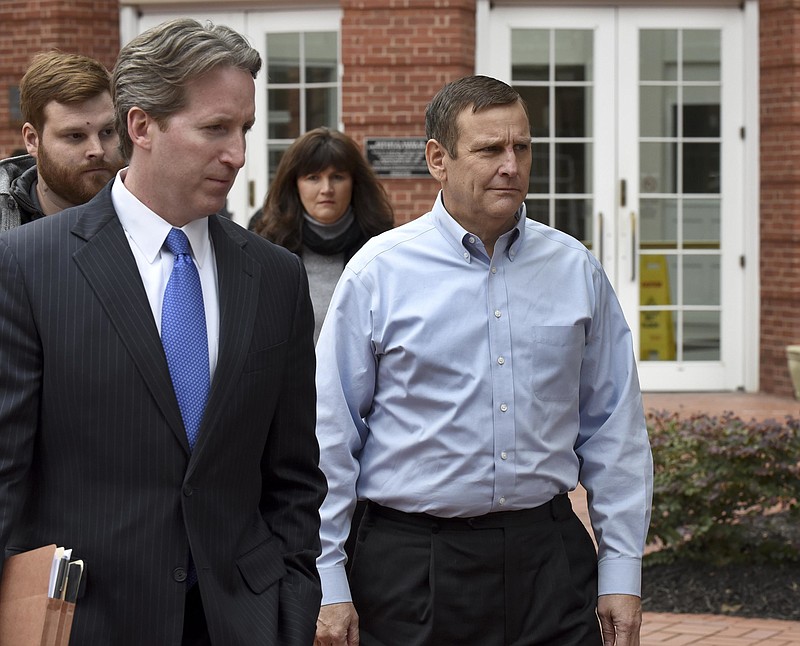CHATTANOOGA, Tenn. (AP) - Federal prosecutors on Monday outlined their case against former Pilot Flying J executives and sales representatives as being the result of an "infection of fraud" at the truck stop chain controlled by the family of Cleveland Browns owner Jimmy Haslam and Tennessee Gov. Bill Haslam.
Assistant U.S. Attorney David Lewen told jurors in his opening statement that the four defendants participated in a widespread scheme to undercut competitors, boost company profits and reap the rewards in terms of personal compensation.
Lewen said the case will show that the sales team set out to target unsophisticated trucking customers they deemed unlikely to recognize they weren't receiving their negotiated rebates, and to furnish them with manipulated invoices if they started asking questions.
The goals could be summarized as "identify, cheat, lull," Lewen told the jury. Leaders of the sales team trained junior staffers on how to participate - and shielded off colleagues who they suspected of not being on board, he said.
"There was an infection of fraud within the sales department," Lewen said, adding that the case will illustrate "the power of pennies," in which slight adjustments to negotiated rebates for unwitting customers resulted in huge windfalls for the company.
Several of 14 former Pilot colleagues who have already pleaded guilty in the investigation will be called to testify, though Lewen warned jurors that their role in the scheme to rip off unsuspecting trucking company customers may give them pause.
"These witnesses you are going to hear from are criminals," Lewen said. "They've pleaded guilty ... There are no swans in the sewer."
Attorneys for the defendants - former President Mark Hazelwood, former vice president Scott "Scooter" Wombold and two other former members of the sales team, Heather Jones and Karen Mann - declined to give opening statements.
The trial, which is expected to last up to six weeks, follows a 2013 raid by federal agents on the Knoxville headquarters of privately-held Pilot.
Pilot earlier agreed to an $85 million settlement with most of the defrauded customers as well as a $92 million penalty to the government. The Haslam brothers have denied any prior knowledge and have not been charged with any wrongdoing.
The company's former president and three members of the sales team are being tried in Chattanooga, about 100 miles (160 kilometers) southwest of Pilot's headquarters.
Pilot was founded by family patriarch Jim Haslam, a former University of Tennessee football player, with a single gas station in 1958. By the time of the raid, the company had grown to become the country's largest diesel retailer, with annual revenues of $31 billion. In a surprise development last month, Pilot announced that it was selling a major share - and ultimately a majority stake - in the business to Warren Buffett's Berkshire Hathaway. At the time of that announcement, Pilot said it had $20 billion in annual revenues.
The Haslam family will keep its controlling stake until 2023, when Buffett's company will take over 80 percent of the company.
A 120-page FBI affidavit produced in support of the search warrant for the 2013 raid included transcripts of undercover recordings of Pilot employees discussing the scheme, often in crass terms. In one recorded meeting of regional sales directors at the lake house of John "Stick" Freeman, the Pilot vice president of sales told younger colleagues they should carefully select their customers.
"Some of 'em don't know what a spreadsheet is. I'm not kiddin'," Freeman said. "So, again, my point is this: Know your customer."
Freeman, who was described in court documents as the architect of the scheme, was among four former members of the Pilot sales team who pleaded guilty in July and agreed to cooperate with federal authorities.
